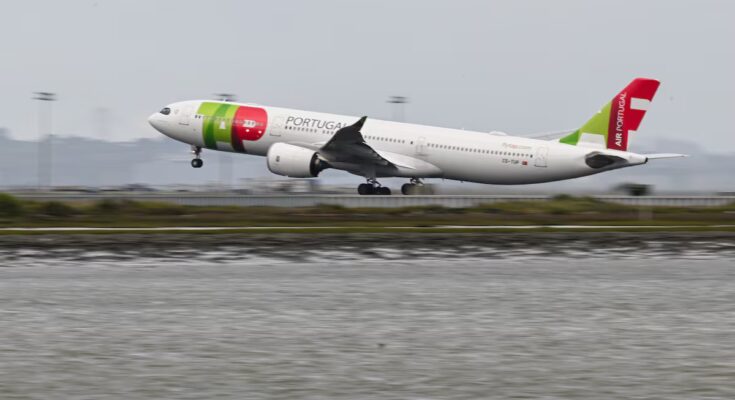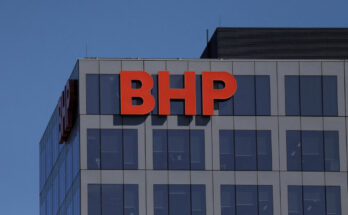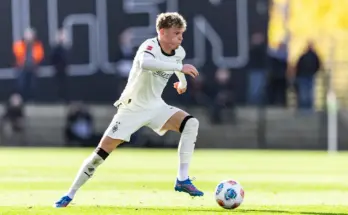The Portuguese airline TAP began the last decade with one privatization and is preparing to end it with another. Then it was sold, then nationalized and now it is back on the market because the Portuguese government believes it will be better managed in private hands. Barring unforeseen circumstances, one of the three large European aeronautical groups, Lufthansa, IAG and Air France-KLM, will be the future manager of the Portuguese company, when the sale operation concludes in 2026. They are the only companies that have shown interest in acquiring 44.9% (the State will control 50.1% and reserve another 5% for workers), but the process is proving to be more eventful than expected due to the anomalies detected in the privatization of 2015, which this week triggered judicial searches in 25 offices, homes and offices.
The Prosecutor’s investigation could target the current Minister of Infrastructure and Construction, Miguel Pinto Luz, who manages the current privatization and who in the past signed, as Secretary of State, the sale which is now in the crosshairs of justice. These are some of the turbulences the airline faces. Future TAP managers will have to deal with some of these.
Political suitability of the minister. The Socialist Party announced on Sunday that it will request the presence of Minister Miguel Pinto Luz at the Assembly of the Republic to explain his role in the previous procedure for the sale of TAP, which took place in November 2015, to the Atlantic Gateway consortium, formed by the companies of David Neeleman (owner of the Azul airline) and Humberto Pedrosa, owner of the Barraquero group. The searches carried out this week by order of the Prosecutor’s Office, which investigates, among others, crimes of corruption and fraud, are for the socialist parliamentary leader, Eurico Brilhante Dias, “particularly serious because the person who supervises the current privatization process is the Secretary of State who then signed the previous privatization on behalf of the Portuguese government”. The current European Commissioner for Financial Services, Maria Luís Albuquerque, then Portugal’s finance minister, also participated in the early stages of the sale.
The shadows of the previous privatization. The previous Socialist government’s decision to review the sale of TAP in 2015 led to a devastating report on the sale process. The Treasury Inspectorate General found several irregularities such as the planning of a commercial engineering operation so that the funds for the purchase of TAP would come from the company itself and not from the buyer, Atlantic Gateway, as well as others such as the simulation of contracts to evade taxes by the main directors (David Neeleman, Humberto and David Pedrosa) and investments “without economic rationality” in Brazil which led to millionaire losses for TAP. This tax report is part of the documentation that the Prosecutor’s Office processes to ascertain whether there have been crimes. Two companies and two people involved in the privatization, signed almost clandestinely in November 2015, are currently under accusation. The operation was formalized at night and in private, decided by a government already overthrown in Parliament by the left-wing majority, but which considered the signing of the contract an “urgent and urgent” necessity.
Nationalizations and millionaire aid. The political turning point in Portugal, with the arrival of the socialist António Costa in government, modified some privatization conditions and reserved 50% of TAP to the State. The airline’s losses piled up in 2018 and 2019, but the straw that broke the camel’s back would be the pandemic. The differences between the private managers of Atlantic Gateway and the Government worsened and led to the consortium’s exit from the company’s capital. At the end of 2021 the airline will pass completely into state hands. The then Minister of Infrastructure and Construction, Pedro Nuno Santos, defended the contribution of one million dollars in public aid to save it from bankruptcy, given its importance as a pillar of the Portuguese economy and cultural bridge to Portuguese-speaking countries. In exchange for authorizing the injection of 3.2 billion euros of public funds, the European Commission called for a tough restructuring plan involving layoffs, salary cuts and the transfer of staff slots at Lisbon airport to competing companies.
Ryanair against the Portuguese State. The airline low cost complained about public aid to TAP before the General Court of the European Union, which in February this year upheld Brussels’ decision to allow public support for the company in the context of the pandemic. Ryanair appealed against the ruling in April this year, the decision on which is pending. The lawsuit against David Neeleman’s TAP, which demands payment of 90 million euros to his company Azul, is also pending.
The phases of ongoing privatization. Once the deadline for submitting declarations of interest has expired, the company Parpública (Public Participation) now has 20 days to submit a report on the options presented by IAG, Lufthansa and Air France-KLM. From that moment on, interested parties will be invited to submit non-binding offers within a period of 90 days, at the end of which the Government will approve which groups advance towards the presentation of binding proposals. The sale aims to partially recover the public money injected into TAP, so the economic proposal is relevant for the decision of Luís Montenegro’s executive.



